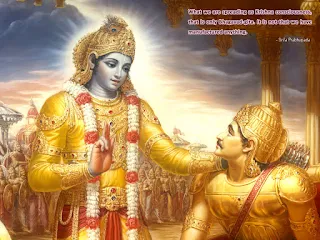Grapes of Wrath (1940)
Director: John Ford
A novel by John Steinbeck
Director: John Ford
A novel by John Steinbeck
A typical scene in a big establishment when a crisis looms. When a patient is discharged from a hospital and has to speak to somebody who has the authority to give a discount, he will be given a runaround. Nobody has the power to approve that slash in the bill. It is always about the system, or the management has to decide. Who is managing, they may ask? Nobody can give a straight answer as a management team is not one person, and his job his not permanent. Even the CEO has to safeguard his career - too much of a discount-and may lose his job. Same with a big establishment like a bank. Even the bank manager emphasises with his loyal customers, his hands are tight. He has to toe the line of stock-owners and continue squeezing the debtor for dues.
All the big establishments invoke the fear of the weight of powers that be upon the weak. The elites and powerful side of the society are constantly rubbing shoulder with the authority and the corporations. This unholy alliance creates a deep fissure in the community, as the haves and have-nots fleet further and further away from each other. In times of calamities, this becomes apparent; the effective use of all the resources upon their disposal to pounce upon the poor ensures that the rich continue enjoying their living style.
If history has taught us anything, we realise that the widening of economic prowess is a perfect recipe for a revolution. When they feel powerless against a perceived autocratic system, people will raise their working tools in solidarity to fight back. We saw it in the French and Bolshevik revolutions. Hunger is a potent trigger to change the course of history.
Logically, we should soon be seeing the effects of a year of Covid-induced lockdown. Civil servants continued receiving whilst the self-employed had to tighten their belts with loss of income and the inconveniences of multiple Government restrictive policies.
After the initial euphoria of the end of WW1, the world plunged into an economic depression in 1929. The weather was also against their side for the Joad family in Oklahoma. The family has to leave their farmland as the bank pressures them for outstanding payments. The family with other Okies (Oklahomans) leave their Dust Bowl State for California in their rickety truck, together with Tom, who had just been out of prison. After enduring a treacherous journey, they soon discover that California is no promised land. There is starvation, oppression by the authorities, bullying by employers and police's unholy union, and restrictions on personal liberties.
John Steinbeck's 1939 novel is a Pulitzer-winning classic with much Reds undertone and is used as reading in many American schools. He went on to win the Nobel Prize in Literature in 1962 for that work. The book is a stark reminder that the subject matter discussed can be topical at any period. The poor will always remain impoverished despite advances in science, technology, and economic leaps and bounds. The rich and those in power will always devise ways to keep them under their thumbs. New laws will be instituted, taxes will be adjusted to accommodate the rich and novel ideas will prop up to entice the downtrodden to dance to the big conglomerates' tune.
The title 'The Grapes of Wrath' may have a Biblical reference. In the Book of Revelation, an angel swung his sickle to the earth and gathered the clusters from the vine of the world, and threw them into the great winepress of the wrath of God [14:19-20]. Grapes, when pressed, will morph into a divine and spirited drink. Hence, when the workers are oppressed for too long, they would rise to wreak justice upon greedy and self-serving landowners and bankers. The filmmakers had to modify the storyline to not arouse legislators' curiosity when Hollywood was mainly targeted for subtly spreading communist's sentiments.
The phrase 'grapes of wrath' also appears in Julia Ward's composition of 1861 'The Battle Hymn of the Republic', a famous American patriotic song.
 |
| Roman Charity: Pero secretly breastfeeds her father, Cimon who is sentenced to death by starvation Peter Paul Rubens |
Not everyone in the USA, especially the Californians, took in kindly to Steinbeck's book. The idea of Americans treating their own kind with so much scorn and cruelty was too repulsive. The idea of our cooperative type of setup like the one in a communist/socialist nation instead of American democracy in solving the poors' misery was offensive. To top it all, the book presents a character who performs an act of Roman Charity. She nurses a sick and starving man.
This work is licensed under a Creative Commons Attribution 4.0 International License.





















